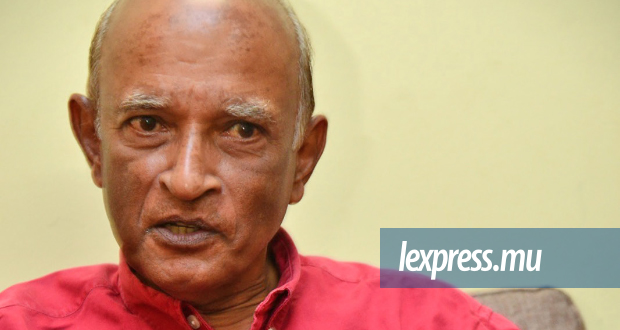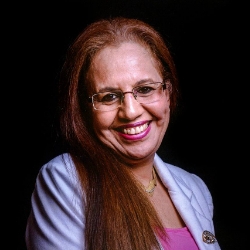Publicité
Interview with: Uttam Callikan
Questions and doubts hover around school admissions
Par
Partager cet article
Interview with: Uttam Callikan
Questions and doubts hover around school admissions

Uttam Callikan.
Former associate professor at the University of Mauritius followed by management level experience in manpower training, Uttam Callikan shares some of his views on a sector he knows best – education.
The education sector has been making the headlines for a while now and for the wrong reasons. What has happened to this sector in the last few years?
Education has never been an easy ministry as it is a behemoth that covers a vast ground from pre-primary to university, through technical and vocational training, including exams, standards and quality management. Few outsiders, I suspect, would have intimate, first-hand knowledge of all levels and challenges therein.
But doesn’t the ministry rely on its cadres for the management of the sector?
Yes it does and these are mostly experienced and steeped into the nitty-gritty of admissions, text-book and teacher availabilities and other such administrative matters of great importance and relevance to parents and children.
How come then that in the last few years, things got out of hand and in the last year, it has been a total chaos?
Matters do seem somehow to have got out of phase, with irate parents expressing their anger on the airwaves about missing books and teachers, some bug infestations in some schools and even sub-standard basic amenities, violence in schools etc. These problems must (or should) be mystifying to IVTB House.
What are the reasons behind them? After all, school had been running more or less smoothly for years, hadn’t they?
Yes, they had. There are questions we should be asking ourselves: are the reporting and inspection structures for the primary school sector functioning as they should in the six regions, without unproductive silos between departments? Do they have the mandate only to make recommendations or the delegated authority and funds for urgent or remedial action? Has demotivation steeped in? Should the ministry consider not just an annual finance audit but a periodic management audit that checks on the efficacy and efficiency of structures, processes and their deliverables as per expectations?
What is your answer to those questions?
Whatever be the case may be, for what should be an experienced structure, IVTB House has to figure out what is going or has gone amiss in its administrative side and address those issues which are of such concern to parents, students and even to dedicated and concerned educators and teachers. That’s routine administration and with the considerable resources at the disposal of the ministry, we are entitled not to expect such glaring misfiring in primary schools, which we might add, constitute, beyond the pre-primary, the first point of contact for most children with formal education processes.
On a more global level, the nine-year schooling was marketed as a revolution in primary and secondary school education. What effects has it had on the educational system?
Let us be frank, education reform is never easy as there are so many constituents and stakeholders to take account of and the sector is diversified with private, confessional and public sectors vying for diminishing population cohorts, not to mention institutional vested interests and inertia. They are surely launched with the best of intentions though sometimes imposed as political policy by a minister with a small posse of advisors, after minimal consultation and certainly no White Paper to guide informed exchanges and avoid pitfalls. We remember well how the imposed but ill-conceived and ill-fated education reform plan of Minister Obeegadoo turned into the millstone that the MSM-MMM alliance had to carry and weighed heavily on their 2005 electoral fortunes.
As heavy as the nineyear schooling?
One would have thought some important lessons would have been drawn from that Obeegadoo’s conceptual fiasco, although he might have been forgiven for not being a pedagogue. Same cannot be said of Minister Leela Devi Dookhun, who boasted a long teaching career in a star college of the confessional sector. The nine-year basic education concept had been around, mulled and touted as the panacea for decades it seems. She latched on to it and the Mauritius Institute of Education (MIE) provided the underpinning reports. Any education reform should aim for a 20-year horizon at least and be sustainable, equitable and take account of our sociological and structural specificities. And it should be judged on its outcomes, not on its generally laudatory intentions or power-point presentations.
What are so far the key outcomes or deliverables of the nine-year reforms?
The nine years are theoretical, since it remains a six-year primary plus three years in a secondary school, separated by the Primary School Achievement Certificate (PSAC) examination and selection that encourages competition. That might have been foreseen by the cadres/MIE.
The difference though is automatic promotion. How has that affected the system?
Automatic promotion and PSAC stream out “failures” to the Extended Stream where the children are given an extra year with remedial coaching and are expected like all other children to sit for the same new National Certificate of Examination (NCE) while staying in the same school compound. Results show it is an unmitigated disaster with some 70 NCE passes out of 2-3,000 extended streamers. Honestly, it was entirely predictable. Those who dreamt up this pedagogical concoction should be offered earliest retirement!
Isn’t the rat race worse?
Yes it is. The NCE has turned out to be ferociously competitive, as it intends to grade out the best performers to 4-year so-called Academies, which would be the pampered prize of our system (but which the confessional stream politely declined by the way) while the majority would remain in their forlorn colleges, bereft of their best elements and possible role-models.
How about technical and vocational education?
Technical and vocational education was phased out of mainstream academic education and became a pathway for drop-outs and “failures”, not the sort of branding that should enthuse anybody with experience in the domain. The “avant-gardist” IVTB, pioneered and championed by Messrs Munbodh and Dubois must be aghast at this branding at a time when, more than ever, we need thousands of youths equipped and skilled not only for pipe-fitting, mechanics and electricals but also for computer, telecoms technology/maintenance and the requirements of the future. Not to mention skills training for sports, arts, agriculture, the environment with integrated micro-enterprise development skills.
Aren’t these being provided by the Polytechnics?
The Polytechnics have added a welcome feature but do they cater for the thousands of dejected and rejected drop-outs and failures? Since implementation of Nine-Year Basic Continuous Education (NYBCE), more than 10,000 pupils have been abandoned by the wayside of academic pursuits and were left to fend for themselves...
How?
Well, the academic streaming and mind-set deeply etched into the NYBCE reform excludes thousands of pupils. After all the harassment to obtain the NCE, more children have to face eviction at O-levels on the basis of failure to secure the 5 credits that would grant them access to Higher School Certificate or Alevels. Can we continue with such executive fiat of exclusion issued by academic overlordship?
I ask myself the same question, particularly that this academic overlording as you call it is compounded by incompetence in the management of schools and resources: no school books, school closing every time there is bad weather, enhancement programme not enhancing the level of the students…
The ministry is right to be safety conscious, especially since the Belal disaster, but it has since developed an unjustified fondness for nationwide school closures if rains threaten. How do educators or the system cope with demands for equitable catch-up? And, by the way, why on earth should the minister or IVTB House issue rain closure notices for education institutions that cater for post 18- year old adults who are mature enough to vote their MPs and exercise full democratic rights? Are individual institutions such as universities so helpless at managing the weather circumstances in their region? It is true that our once prized universities have been turned into state-fund dependent extended secondary schools that such aberrations are par for the course?
In an interview carried in l’express in 2016, to my question as to whether you considered the nine-year schooling would reduce the rat race, you replied: “No. It will in fact likely end up increasing highly competitive selection examinations, student stress and pressure and restrict access to coveted academies to the privileged parents who can afford to impose further private tuition on their unfortunate kids.” How do you feel today about your prediction?
Sadly, I was running counter-current then and such misgivings by a few observers and secondary school unions were dismissed as the ministry pushed on. Most pedagogues without ties to the vested interest groups or the ministry will acknowledge that far from the flowery prose of MIE/IVTB House, we now have an elitist, academic driven, examoriented system, backed by a private-tuition industry, from which the majority drop out at various levels or are excluded by administrative fiat for insufficient credits at O-levels. The rat race has hit back with a vengeance!
This outcome is so patently unacceptable that the greatest urgency is to free the system from those shackles. We might remember that as taxpayers and consumers, we fund the behemoth to the tune of some Rs20 billion. As the current oligarchies running IVTB House or its affiliate agencies have been the architects of that system, it is very doubtful that they can turn it around.
Some observers have pointed out that apart from making the system more competitive – or as you said bring the rat race back with vengeance – the level of education in general seems to have gone down. Do you agree with that?
When the NYBCE has proved to be such a poor fit to our realities, catering mostly for those who struggled with great merit through the hurdles of their schooling to the Academies, there are strong temptations to fiddle around with exams and grades, lowering them to hide the realities.
There is also, it would seem, a deplorable opacity in the selection system. The son of an activist – Rajen Valayden – is still deprived of the school of his choice in spite of his excellent results. What is your reaction to that?
Questions and doubts hover around school admissions after PSAC and NCE and we can understand and empathise with those parents, as in the case of activist Rajen Valayden, who feel unfairly treated by the absence of transparency, despite meritorious results of their child. IVTB House and the MES should come clean and stop hiding facts and statistics to spare the blushes of the nomenklatura.
Publicité
Les plus récents






